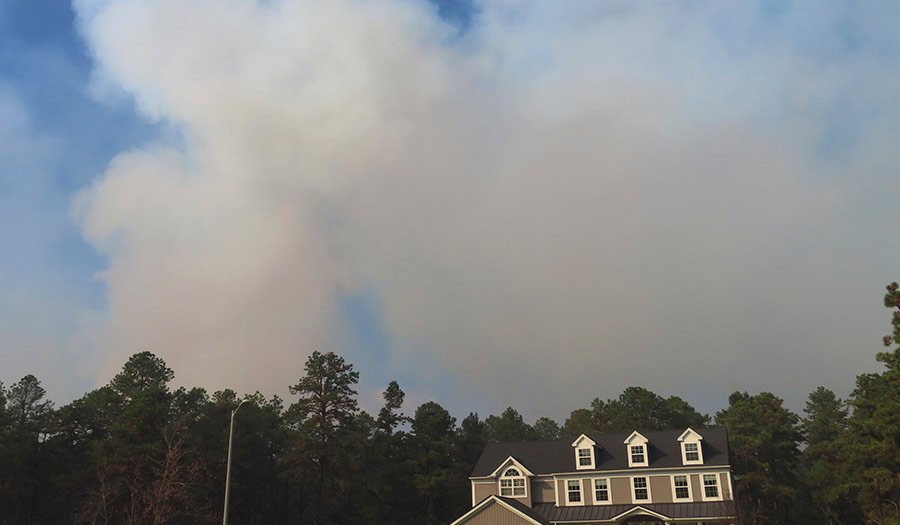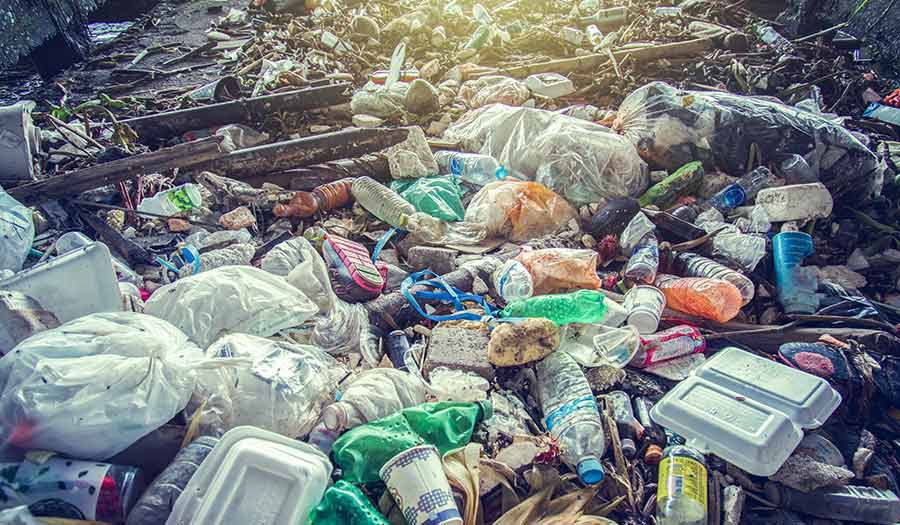 AP/Wayne Parry
AP/Wayne Parry
World News Desk
Learn the why behind the headlines.
Subscribe to the Real Truth for FREE news and analysis.
Subscribe NowBRICK, N.J. (AP) – Record-setting dry conditions in some parts of the U.S. are raising fears of new wildfires and also could threaten drinking water supplies if substantial rain does not fall in the coming months.
Firefighters battled wildfires from California to New York on Wednesday, hampered by high winds and arid landscapes.
“Please take this seriously,” said New Jersey Governor Phil Murphy in declaring a drought warning Wednesday. “We have a very dry winter ahead of us.”
Crews in California made good progress against a major wildfire in Ventura County, northwest of Los Angeles, that broke out a week ago and quickly exploded in size because of dry Santa Ana winds. The Mountain fire was 60 percent contained on Wednesday.
“Fire will continue to remain within containment lines with no growth predicted,” the state agency Cal Fire said in a Wednesday report, adding firefighters would be standing down there and residents would be able to return when it is “safe to do so.”
The 32-square-mile fire forced thousands of residents to flee and has destroyed more than 215 structures, most of them houses, and damaged at least 210.
Conditions in California were “abnormally dry” but had not reached serous drought levels on most of the state, according to the Nebraska-based National Drought Mitigation Center.
Things were more difficult on the East Coast, where efforts to bring a wildfire burning on the New Jersey-New York border basically stalled overnight.
The Jennings Creek fire remained 30 percent contained Wednesday morning—the same as Tuesday night.
It had burned 2,283 acres in New Jersey’s Passaic County and 2,100 acres in New York’s Orange County.
Greg McLaughlin, an administrator with the New Jersey Forest Fire Service, said steep mountainous terrain and high winds, coupled with few road access points, were making it difficult to fight the blaze from the ground. A water-dropping helicopter was also being used, but the usual array of bulldozers and plows was not effective on this particular fire.
That blaze claimed the life of a New York state parks employee who was assisting firefighters over the weekend.
Dry conditions in New Jersey and New York are a growing concern, not only for firefighting efforts but for the continued availability of drinking water.
New Jersey officials declared a drought warning on Wednesday, asking for additional voluntary conservation measures, and saying they want to avoid imposing mandatory water restrictions.
Two major reservoirs in the state were at 51 percent and 45 percent of capacity on Wednesday, enough to keep the taps flowing, but low enough to cause concern for what might happen with additional weeks or months of low rainfall. One river that is a supplemental source of drinking water was at 14 percent of normal.
Mr. Murphy asked people to take shorter showers, only run the dishwasher when it is full, and turn off the water while brushing their teeth.
September and October were the driest two-month period ever recorded in New Jersey. Since August, the state has received 2 inches of rain when it should have gotten a foot.
No significant rainfall was in the foreseeable forecast, officials said.
The ground is also bone-dry, Mr. McLaughlin added. This makes wildfires even more dangerous in that they can burn downward through dry soil and root systems, and endure for months.
On a ground dryness scale in which 800 is the highest possible score, New Jersey is at 748, meaning that the soil is dry almost 8 inches below the surface. That level had never before been reached, Mr. McLaughlin said.
A wildfire that broke out July 4 in New Jersey’s Wharton State Forest by someone using illegal fireworks has long been considered contained. But it has been smoldering underground for four months and could reignite above ground, Mr. McLaughlin said.
“We have to monitor these fires for weeks or months,” he said.
Conditions are also dry in New York, which issued a drought watch last week. Mayor Eric Adams mayor urged residents to take shorter showers, fix dripping faucets and otherwise conserve water.
Just 0.01 inches of rain fell last month on the city’s Central Park, where October normally brings about 4.4 inches of precipitation, National Weather Service records show. City Department of Environmental Protection Commissioner Rohit Aggarwala said it was the driest October in over 150 years of records.
Massachusetts declared a drought Tuesday after more than a month of decreased rainfall.
- Personals
- RELIGION
 Man’s Insoluble Problems—Why?
Man’s Insoluble Problems—Why?
More on Related Topics:
- Why Freezing Rain Has Millions at Risk of Losing Power—and Heat
- Firefighters Face Attacks, Drones and Arsonists While Battling Deadly Blazes in Chile
- ‘It’s Not Safe to Live Here.’ Colombia Is Deadliest Country for Environmental Defenders
- ‘Everything Destroyed’ as Indonesia’s Aceh Grapples with Disease After Floods
- A Drying-Up Rio Grande Basin Threatens Water Security on Both Sides of the Border


